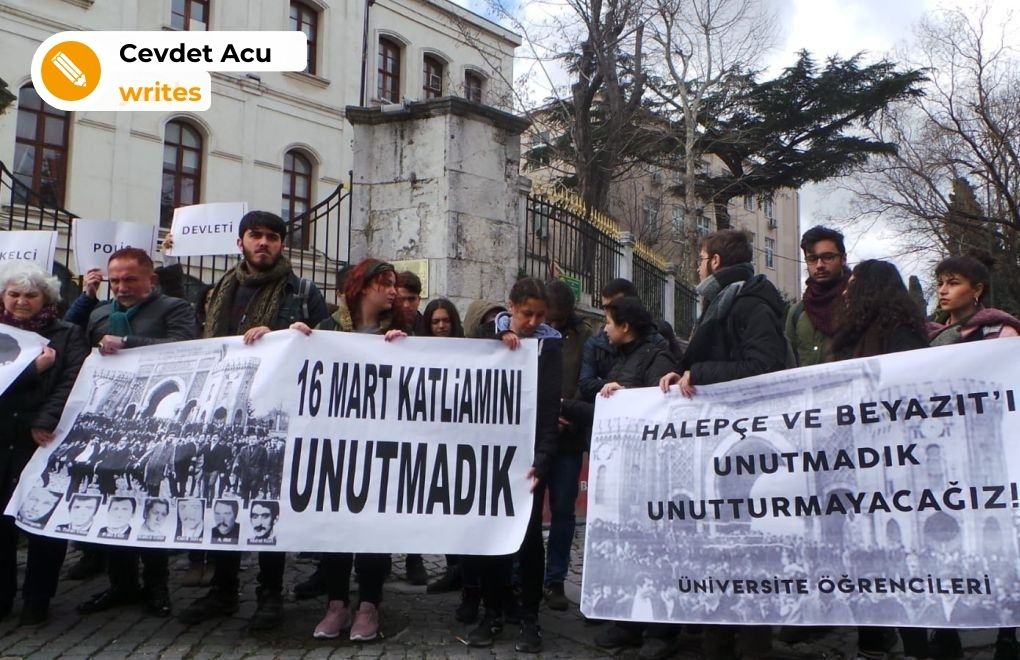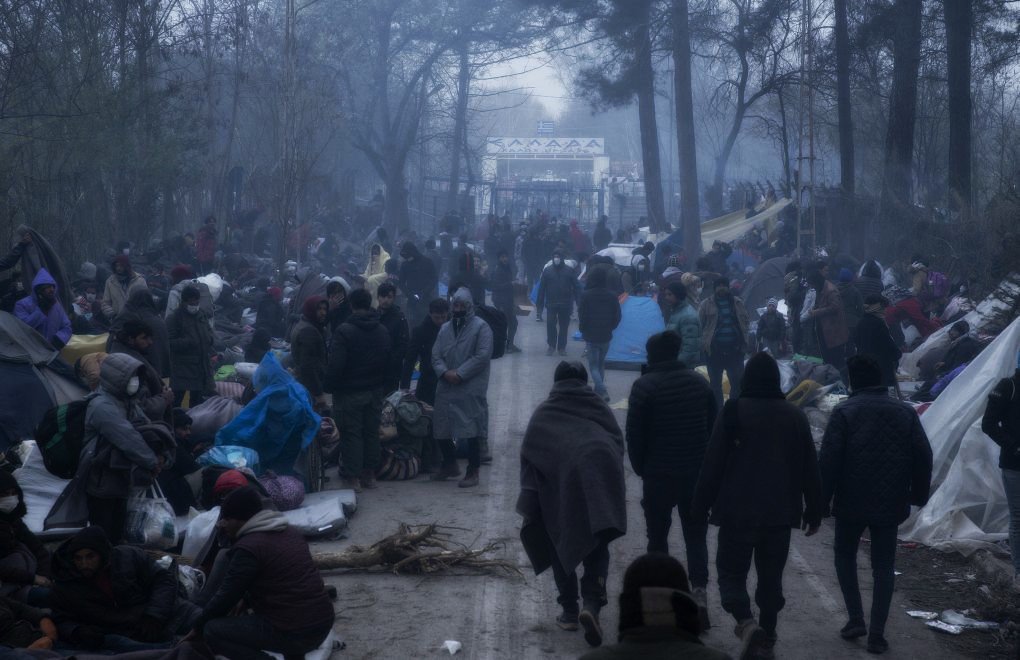* Photo: Hamza Ajan - Social media
Click to read the article in Turkish
At the beginning of my piece, I want to highlight that hate and ignorance eventually kill every good thing in the society where we live. As a person who has been asking questions to find an answer to why there is hate in the world, and why a person particularly hates the one who is different from him/her, I have decided to work on the refugee case for my PhD.
As it is known, refugees are one of the most vulnerable groups in society. I have been doing my PhD to understand how refugees integrate into society. Whenever I have a look at the reports and research which indicate public attitudes against refugees, I see similar results.
Almost every report or research shows that the majority in the refugee receiving country are against the refugees' presence in society for different reasons. I will not discuss these reports and research, but I will add some of them at the end of my paper for those who are interested in the issue.
In this piece, I would like to discuss the death of Hamza Ajan, who was a Syrian refugee living in Turkey since 2012. Hamza was only 17 years old, and he was beaten to death by four "humans" on the July 15, 2020. Hamza was one of the best Syrian refugees in Turkey.
According to the Article 1 of the UNICEF Convention on the Rights of the Child, "For the purposes of the present Convention, a child means every human being below the age of eighteen years unless under the law applicable to the child, majority is attained earlier".
Hence, he was a child when they brutally killed him. I am sure that if he was alive today, he would like to say lots of things which were being ignored by most mass media in Turkey. Even some mass media did not mention Hamza's death as they did not care about the life of refugees.
Today, as a human being standing with those who have been forced to leave their home, I will just write on behalf of Hamza. We must stand with people who are discriminated in the society as a human being; otherwise, this unfair system will kill each one of us someday. I thought that it would be good to begin with how Hamza ended up in Turkey.
'Yes, I am Hamza Ajan...'
Yes, I am Hamza Ajan, and I am from Syria. I was only 8 years old when people were just protesting in a peaceful way against the tyrannical and corrupt government in my home country, Syria, in 2011. I was living in Idlib, a city in northwestern Syria, with my family during that time. I was living very close to one of the ancient greatest cities, Ebla.
I was happy as I had lots of friends around me. We were playing on the streets altogether almost every day, and each one of us had a dream to pursue for the future. We, mostly, were playing either 'marble glass game' or 'hide-and-seek'. We also used to play football a lot. These were most common among boys in Syria. However, I was also playing a game where we draw a square and divide it into smaller squares. There was also a small piece of stone where we would be standing on one leg to move the stone from one square to the other without touching the lines of each square. This was mostly a girly game, but we were just kids. Hence, I played all the games I like without thinking if it is a boy's or a girl's game.
'Protests started in early 2011'
In early 2011, I started to see that some people were protesting the government; I was seeing this on TV almost every day. I felt that something must be wrong at that time. Later on, I understood that people were protesting as they did not have a decent life to live as a human being.
It was a time to say enough was enough. They were looking for better welfare with freedom, and they believed that it was possible to live in a society where people had an equal opportunity. They assumed that it was totally fine to protest if there were huge problems such as unequal income distribution, corruption, and injustice.
People were determined to change this unfair system; they started to take to the streets, shouting out loud and calling for freedom and change in 2011. These were peaceful protests as some people protested with flowers and offered bottles of water to the soldiers in Damascus, capital of Syria, and it is one of the oldest continuously inhabited cities in the world.
In the year 2011, protesters did not pay attention enough that the government might use non-proportional force against them to destroy their lives. The government, unfortunately, used violence against the protesters who offered flowers and bottles of water to the regime soldiers at the start of the uprising, instead of listening to them.
People were shocked when the government fired on peaceful protesters in several cities, and the activist, Ghaith Matar, who started the practice of handing a rose and a bottle of water to the soldiers, was found murdered in mid-2011. Then, everything started to change destructively in my home country, which was one of the oldest residential lands in the world.
The government did not tolerate even a peaceful protest calling for freedom and a life with dignity. Roadblocks were almost everywhere as the authoritarian government was trying to control everyone.
Every day, the death toll increased as more people took to the streets to protest this brutality in 2011. The level of conflict expanded almost every part of my home country, and people were polarised. Towns and even families had been divided based on their political views.
This protest turned into violence which destroyed both my home city and my dream. The government forces were killing civilians, they were destroying the civilian houses with army tanks and helicopters attack.
'We left Syria for Turkey'
Each day, several houses were destroyed by bombings, and this violence arrived in my home city, Idlib, too. Hence, the streets where I used to play with my friends turned into a bloody war.
My home, Idlib, was burning. There was no life anymore in Idlib, most people and all my friends left their house just to survive. Whenever I went to bed, I wondered whether I would wake up the next morning or not. I felt that I was so close to death at that time.
My family and I left our house to move somewhere else where we could have a life as normal people have. We went to Turkey, which is one of the neighbouring countries with Syria. I still remember that many people like us on the street were walking to reach to Turkey.
After a long time, we passed the border, and we arrived in Turkey. I thought that everyone in Turkey would welcome us. I assumed that everyone would feel sympathy for us as we were forced to leave our home.
Even at the beginning of my stay in Turkey, when I saw some images and news about us, I thought everyone in Turkey was caring for us.
Almost every day on TV, I was seeing that particularly men (politicians) in black suits were showing our desperate photos. I was praying to Allah to show my appreciation for these people who were talking about us.
I could not understand what people were saying about us as I did not know Turkish in the beginning. But I was sure that all these people and mass media were telling the truth about us.
'They said we were the reason for problems'
After a while, when I learned how to speak Turkish; I realised that something was wrong in society. I understood that most people were humiliating us just because we were Syrians, and people in black suits were showing our images to say that Syrians were stealing from local people in Turkey.
Later on, I understood these people were MPs, and they were telling people that Syrians were the reason why the Turkish economy was going down. Most mass media outlets were showing our pictures to increase the tension between us and the local people.
Hence, I learned that we were blamed for every bad thing in Turkey. Some people were even telling us that we were fine in Syria, but we escaped from our country. Furthermore, some people were beating us without any reason just because we were Syrians. We did not have enough legal protection to protect ourselves against this injustice.
So, I was shocked for the second time in my short life. My first shock was when the Syrian government ignored people's basic request to kill them.
'Second shock in Turkey: What to do now?'
I did not know what to do or where to go after the second shock. It seemed that I had no place to live in freedom with dignity as a human being. Anyway, I found a job in the open-air public market in Gürsü district of Bursa, where I lived with my parents, I had to work and help my parents.
I wanted to have a better job but I did not have the luxury to follow my dream anymore. I just wanted to focus on my new life, and I ignored people who were discriminating us just because we were Syrians.
However, I could not tolerate people who were harassing a woman. On July 15, 2020, when I saw some racist people working in the market were harassing and insulting a woman, I got mad.
That lady was a Syrian refugee like me, but I did not pay attention to her nationality. I would defend her again if she was not a Syrian.
Four racist people were insulting the woman, and I was telling them that it was not acceptable. These four people started to beat me very heavily instead of listening to me. I just tried many times to tell them, "You cannot treat a human in this way." However, whatever I said, they did not listen, and they kept beating me until I lost my consciousness.
People around me suddenly called the ambulance, and they took me to a hospital. I had suffered a brain haemorrhage due to the severity of the blow I had. I was very young, and I did not have enough motivation to fight this time. It was too late for everything. I had already lost my hope while I was in Syria for the future, but this time I lost my life.
Yes, this could be different if people just listened to each other instead of fighting. Yes, it would be different in Syria if the Syrian government had tried to listen to protesters in the beginning, but they failed.
Yes, it could be different if these four people listened to me, but they failed. Who knows? I could still live among you, even though you don't treat me as a human being. Yes, I am Hamza. I was only 17 years old while I was beaten to death by four people on June 15, 2020.
Please just try to listen to one another instead of fighting. Otherwise, this hate and ignorant approach will kill everything someday.
I want to end my piece with a poem which was written by a person who was forced to leave his home like me. He is one of the greatest Syrian poets across the world, Nizar Qabbani:
Why?
I always question myself
Why is there not love in the world for everyone, everyone
Like the sun rays at dawn?
Why isn't love like bread and wine
And like water in the river?
Why don't people love in an easy-going way
as fish in the sea, as moons revolve in the galaxy?
Why isn't love in my homeland essential
Like a book of poetry?
Why?
-
Note: Dear Hamza, I hope that there is a place as it has always been told me, and I hope that you are there now; may Allah rest your soul in heaven. We could not protect you, we could not provide you with a space where you could live in a peace in Turkey. This will always be remembered as our shame. I also wish good health to Hamza's family. May Allah embrace you in comfort during this difficult time. Hamza will not be forgotten, eve. Please accept my condolences. I hope that those who brutally murdered Hamza receive the heaviest punishment that they deserve. Finally, I hope the these brutal deaths stop soon. Enough is enough.
I would like to thank my dear friends Boshra Alzoube and Yunus Asfari who gave valuable information about children's games in Syria.
Some sources which are about the public attitudes against refugees:
Emre Erdoğan & Pınar Uyan Semerci. "Attitudes towards Syrians in Turkey-2017", https://cutt.ly/zamqV7l (Last accessed July 18, 2020)
Faten Ghosn, Alex Braithwaite, and Tiffany S Chu. "Violence, displacement, contact, and attitudes toward hosting refugees", https://cutt.ly/ramwf8N (Last accessed July 18, 2020).
What Shapes Public Attitudes Toward Hosting Syrian Refugees – And How They can Change, https://cutt.ly/ian69nj (Last accessed July 19, 2020).
About Cevdet AcuCevdet Acu is a PhD candidate in Economics at University of Exeter. His focus is on the macroeconomic influence of displaced people on receiving countries. His research is concerned with the question of how Syrian refugees impact the labour market in host countries, particularly in Jordan and Lebanon. |
(CA/SD)




.jpg)

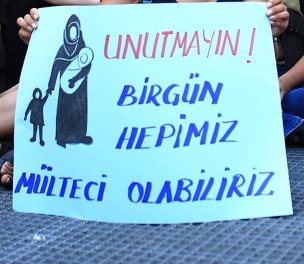
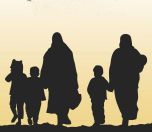
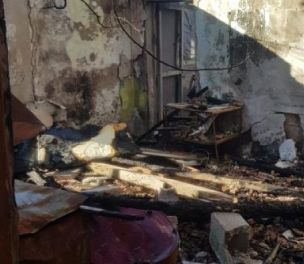
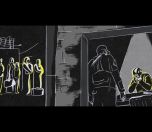
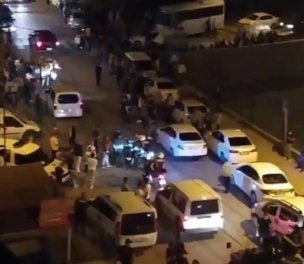
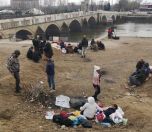
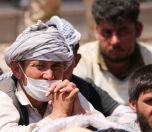
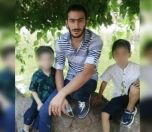
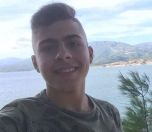
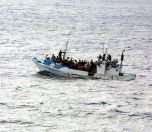
.jpg)
.jpg)

